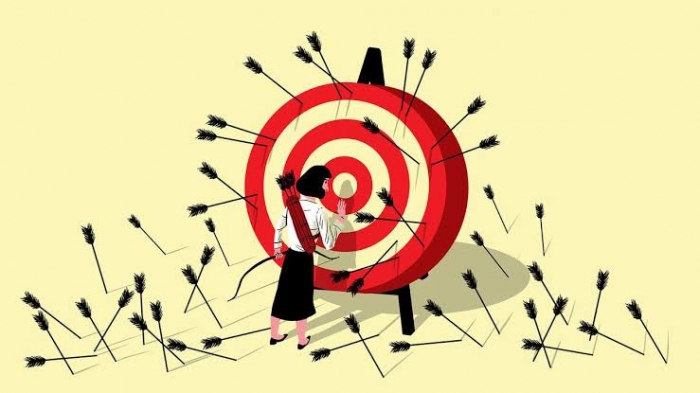“Mistakes are the portals of discovery,” wrote James Joyce in “Ulysses”. In 1888 Lee Kum Sheung, a young cook in a coastal province in southern China, forgot the oyster soup he was boiling on the stove until it simmered down to a thick, sticky gravy. Once he discovered how tasty it was, he decided to sell his “oyster sauce” in jars. That lucky mistake would make him and his heirs rich. According to Forbes, the Lee siblings—his great-grandchildren—are worth $17.7bn, making them the fourth-richest family in Hong Kong.
Your guest Bartleby has not been so fortunate in her mistakes. As with most people, hers have led not to riches but, usually, to stomach-churning embarrassment and a good deal of self-flagellation. From fat-fingered spreadsheet errors and incoherent interventions in meetings to failed mergers and bungled products, failure is a part of corporate life. Yet even the most humiliating mistake can prove to be useful.
Some failures can be chalked up to a lack of experience. Katharine Graham wrote in her autobiography of the many ignominious blunders she made after she became the publisher of the Washington Post overnight, following her husband’s suicide. “I made endless unnecessary mistakes and died over them,” she wrote. She was determined to guard against them. Warren Buffett recalled walking into her office ten years after she had taken over to find a sheet of paper on her desk that read: “Assets on the left, liabilities on the right”.
Of course, even those with plenty of experience are not infallible. In “Right Kind of Wrong”, Amy Edmondson, a professor at Harvard Business School, explores how to build a healthy relationship with failure. In a complex world, she argues, excellence requires taking risks. The important thing is to establish what needs to be done differently next time.
For companies the occasional failure may be the price of innovation. Within months of the Amazon Fire smartphone being introduced in 2014 it was clear to all that the device was a resounding flop, with Amazon forced to write off $83m of unsold inventory. The device was late to the market and had limited features, but was nonetheless priced in the same range as the iPhone and the Samsung Galaxy. Jeff Bezos, the tech giant’s chief executive at the time, would later argue that such misfires were the cost of an organisation relentlessly focused on continual innovation. “If you think that’s a big failure, we’re working on much bigger failures right now,” he said two years after the fiasco.
Mistakes are unavoidable. But they are rarely the end of the story. Graham went on to transform the Washington Post from a city newspaper into a respected national institution; Amazon’s market value today is around 15 times what it was when it made its disastrous foray into phones. So how can individuals and companies successfully bounce back?
In her book Ms Edmondson argues that neither people nor organisations can learn if they deny that an error has happened. Instead, failures need to be carefully and dispassionately examined. That may mean having a process in place to signal when things have gone awry. Workers on Toyota’s production lines, for instance, can pull a cord to raise the alarm when problems arise at its car factories, allowing the team to work out what has gone wrong and where.
Drugmakers, too, have processes in place to learn from failures. Ms Edmondson describes the example of Eli Lilly, today the world’s most valuable drugmaker. After the firm discovered that a chemotherapy drug called Alimta it had spent vast sums developing was unsuccessful, the physician who conducted the trials pored over the results to understand what had gone wrong. He spotted that although some patients had benefited from the drug, those with a folic-acid deficiency had not. Simply adding supplements to the drug in subsequent trials greatly reduced the treatment’s toxicity and improved the survival rate of patients. Alimta went on to be a blockbuster for the business.
You cannot error-proof a career or a company. But you can seek to improve. And if all else fails, a bit of perspective might help. Although it may not feel like it at the time, your error will probably not make the list of history’s most notorious howlers. In 1867 Russia sold Alaska to America for $7.2m, around $160m in today’s money, handing its future rival 1.5m square kilometres of oil-rich territory and access to the northern rim of the Pacific. Few blunders in business are quite as dunderheaded as that.
The Economist


































































